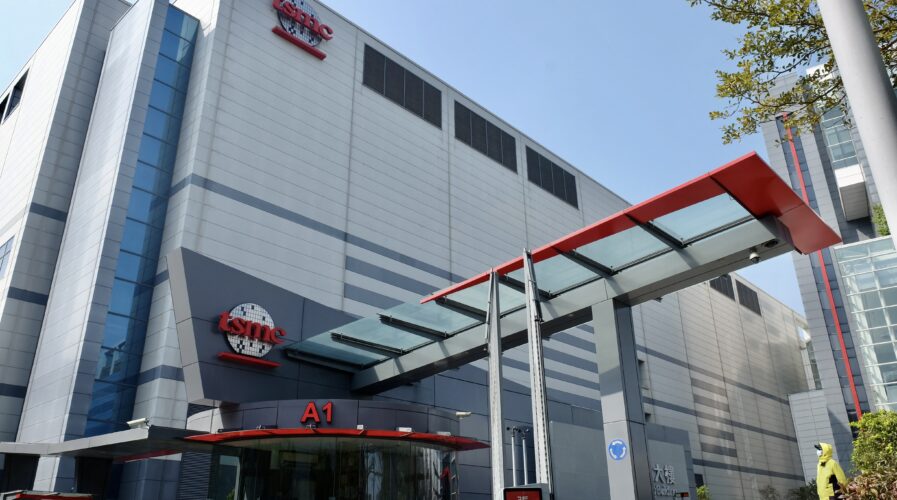
TSMC is increasing foundry prices this year. How will that play out for clients, end-users? (Photo by Sam Yeh / AFP)
TSMC is increasing foundry prices this year. How will that play out for clients, end-users?
- Reports indicated TSMC has already raised its quotes between 10% to 20% for both its 7nm and 5nm processes, and that will impact GPUs, CPUs, and ASICs.
- The hike would impact its biggest clients like AMD, Intel, and Nvidia and it will also lead to an increase to their product prices in the near future.
Since the pandemic, the increased demand amid a shortage within the semiconductor industry has led to a spike in the prices of chips and processors. Unfortunately, this year wouldn’t be any different as reports have indicated that the global chip titan Taiwan Semiconductor Manufacturing Co or better known as TSMC, is raising its prices.
The report by Digitimes stated that TSMC has already raised its quotes between 10% to 20% for both its 7nm and 5nm processes, and is bound to impact GPUs, CPUs, and ASICs. Since big players like AMD, Nvidia, and even Intel relies on the Taiwanese company for its current and advanced node technology, they have no choice but to pay the piper.
Among the reasons for TSMC’s price hike include pandemic related shortages, material costs and even freight and logistics. To top it off, the cost of equipment may indeed rise, as TSMC relies on companies like ASML for many of its foundry tools.
How will it affect the customers of TSMC
Experts reckon it could hit AMD the hardest as team red’s product line includes the 7nm Zen 2 and Zen 3 architectures, while this year’s Zen 4 is built on the 5nm process. Besides that, absorbing the consequences of TSMC’s rising quotes would be one of AMD’s current RDNA 2 consumer graphics cards manufactured on 7nm. To top it off, even AMD’s RDNA 3 is expected to be built on 5nm, according to Techspot.
As for Nvidia, its upcoming RTX 4000 series is expected to be another built on TSMC’s 5nm process. Nvidia has already made upfront payments to TSMC to secure enough wafer supply for the entirety of its upcoming RTX 40-series GPUs, which should be arriving later this year, according to Tom’s Hardware.
Intel on the other hand is the least reliant on TSMC among the big chip companies since it has its own fabrication facilities. Its cutting edge technology however lags behind TSMC by roughly a generation, so it is still relying on the company for silicon made on more advanced nodes than it can currently offer.
Apple, as TSMC’s biggest client, reportedly have agreed to higher pricing to secure wafer starts for its next generation A16 SoC, which is built on a 4nm process and is scheduled to begin production later this year. In short, it is immune to the chip titan’s price hike.
Overall, experts reckon that 2022 could not fare well for PC customers who have been facing excruciatingly high prices for more than a year now. With TSMC’s price hike and tech giants having to pay more, it could only mean that consumers will be seeing a bigger price tag on some devices.
READ MORE
- Strategies for Democratizing GenAI
- The criticality of endpoint management in cybersecurity and operations
- Ethical AI: The renewed importance of safeguarding data and customer privacy in Generative AI applications
- How Japan balances AI-driven opportunities with cybersecurity needs
- Deploying SASE: Benchmarking your approach


